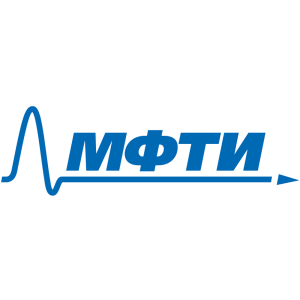Improved Treatment of Ligands and Coupling Effects in Empirical Calculation and Rationalization of pKa Values
Publication type: Journal Article
Publication date: 2011-06-09
scimago Q1
wos Q1
SJR: 1.482
CiteScore: 9.8
Impact factor: 5.5
ISSN: 15499618, 15499626
PubMed ID:
26606496
Physical and Theoretical Chemistry
Computer Science Applications
Abstract
The new empirical rules for protein pKa predictions implemented in the PROPKA3.0 software package (Olsson et al. J. Chem. Theory Comput.2010, 7, 525-537) have been extended to the prediction of pKa shifts of active site residues and ionizable ligand groups in protein-ligand complexes. We present new algorithms that allow pKa shifts due to inductive (i.e., covalently coupled) intraligand interactions, as well as noncovalently coupled interligand interactions in multiligand complexes, to be included in the prediction. The number of different ligand chemical groups that are automatically recognized has been increased to 18, and the general implementation has been changed so that new functional groups can be added easily by the user, aided by a new and more general protonation scheme. Except for a few cases, the new algorithms in PROPKA3.1 are found to yield results similar to or better than those obtained with PROPKA2.0 (Bas et al. Proteins: Struct., Funct., Bioinf.2008, 73, 765-783). Finally, we present a novel algorithm that identifies noncovalently coupled ionizable groups, where pKa prediction may be especially difficult. This is a general improvement to PROPKA and is applied to proteins with and without ligands.
Found
Nothing found, try to update filter.
Found
Nothing found, try to update filter.
Top-30
Journals
|
10
20
30
40
50
60
70
80
90
100
|
|
|
Journal of Chemical Information and Modeling
92 publications, 5.31%
|
|
|
Journal of Physical Chemistry B
83 publications, 4.79%
|
|
|
Physical Chemistry Chemical Physics
61 publications, 3.52%
|
|
|
ACS Catalysis
55 publications, 3.17%
|
|
|
International Journal of Molecular Sciences
55 publications, 3.17%
|
|
|
Nature Communications
49 publications, 2.83%
|
|
|
Scientific Reports
43 publications, 2.48%
|
|
|
Journal of Chemical Theory and Computation
43 publications, 2.48%
|
|
|
Journal of the American Chemical Society
36 publications, 2.08%
|
|
|
Biochemistry
35 publications, 2.02%
|
|
|
Journal of Biological Chemistry
34 publications, 1.96%
|
|
|
Molecules
26 publications, 1.5%
|
|
|
Journal of Biomolecular Structure and Dynamics
24 publications, 1.38%
|
|
|
Biophysical Journal
24 publications, 1.38%
|
|
|
bioRxiv
23 publications, 1.33%
|
|
|
Journal of Medicinal Chemistry
22 publications, 1.27%
|
|
|
Journal of Molecular Graphics and Modelling
19 publications, 1.1%
|
|
|
PLoS ONE
18 publications, 1.04%
|
|
|
Protein Science
17 publications, 0.98%
|
|
|
International Journal of Biological Macromolecules
16 publications, 0.92%
|
|
|
Chemical Science
15 publications, 0.87%
|
|
|
Computational and Structural Biotechnology Journal
14 publications, 0.81%
|
|
|
RSC Advances
14 publications, 0.81%
|
|
|
eLife
14 publications, 0.81%
|
|
|
ACS Omega
13 publications, 0.75%
|
|
|
Proteins: Structure, Function and Genetics
13 publications, 0.75%
|
|
|
Journal of Computational Chemistry
13 publications, 0.75%
|
|
|
Biomolecules
12 publications, 0.69%
|
|
|
Journal of Computer-Aided Molecular Design
12 publications, 0.69%
|
|
|
10
20
30
40
50
60
70
80
90
100
|
Publishers
|
50
100
150
200
250
300
350
400
450
|
|
|
American Chemical Society (ACS)
449 publications, 25.89%
|
|
|
Elsevier
244 publications, 14.07%
|
|
|
Springer Nature
234 publications, 13.49%
|
|
|
Cold Spring Harbor Laboratory
160 publications, 9.23%
|
|
|
Wiley
141 publications, 8.13%
|
|
|
Royal Society of Chemistry (RSC)
125 publications, 7.21%
|
|
|
MDPI
121 publications, 6.98%
|
|
|
Taylor & Francis
35 publications, 2.02%
|
|
|
Public Library of Science (PLoS)
30 publications, 1.73%
|
|
|
American Society for Biochemistry and Molecular Biology
28 publications, 1.61%
|
|
|
Frontiers Media S.A.
21 publications, 1.21%
|
|
|
Oxford University Press
16 publications, 0.92%
|
|
|
eLife Sciences Publications
14 publications, 0.81%
|
|
|
AIP Publishing
11 publications, 0.63%
|
|
|
Institute of Electrical and Electronics Engineers (IEEE)
10 publications, 0.58%
|
|
|
Proceedings of the National Academy of Sciences (PNAS)
10 publications, 0.58%
|
|
|
American Association for the Advancement of Science (AAAS)
9 publications, 0.52%
|
|
|
International Union of Crystallography (IUCr)
8 publications, 0.46%
|
|
|
American Society for Microbiology
8 publications, 0.46%
|
|
|
World Scientific
5 publications, 0.29%
|
|
|
Rockefeller University Press
4 publications, 0.23%
|
|
|
Portland Press
3 publications, 0.17%
|
|
|
The Royal Society
3 publications, 0.17%
|
|
|
IOP Publishing
3 publications, 0.17%
|
|
|
Bentham Science Publishers Ltd.
2 publications, 0.12%
|
|
|
Ovid Technologies (Wolters Kluwer Health)
2 publications, 0.12%
|
|
|
SAGE
2 publications, 0.12%
|
|
|
King Saud University
2 publications, 0.12%
|
|
|
Hindawi Limited
2 publications, 0.12%
|
|
|
50
100
150
200
250
300
350
400
450
|
- We do not take into account publications without a DOI.
- Statistics recalculated weekly.
Are you a researcher?
Create a profile to get free access to personal recommendations for colleagues and new articles.
Metrics
1.7k
Total citations:
1737
Citations from 2024:
428
(24%)
Cite this
GOST |
RIS |
BibTex |
MLA
Cite this
GOST
Copy
Søndergaard C. R. et al. Improved Treatment of Ligands and Coupling Effects in Empirical Calculation and Rationalization of pKa Values // Journal of Chemical Theory and Computation. 2011. Vol. 7. No. 7. pp. 2284-2295.
GOST all authors (up to 50)
Copy
Søndergaard C. R., Olsson M. H., Rostkowski M., Jensen J. H. Improved Treatment of Ligands and Coupling Effects in Empirical Calculation and Rationalization of pKa Values // Journal of Chemical Theory and Computation. 2011. Vol. 7. No. 7. pp. 2284-2295.
Cite this
RIS
Copy
TY - JOUR
DO - 10.1021/ct200133y
UR - https://doi.org/10.1021/ct200133y
TI - Improved Treatment of Ligands and Coupling Effects in Empirical Calculation and Rationalization of pKa Values
T2 - Journal of Chemical Theory and Computation
AU - Søndergaard, Chresten R
AU - Olsson, Mats H.M
AU - Rostkowski, Michał
AU - Jensen, Jan H.
PY - 2011
DA - 2011/06/09
PB - American Chemical Society (ACS)
SP - 2284-2295
IS - 7
VL - 7
PMID - 26606496
SN - 1549-9618
SN - 1549-9626
ER -
Cite this
BibTex (up to 50 authors)
Copy
@article{2011_Søndergaard,
author = {Chresten R Søndergaard and Mats H.M Olsson and Michał Rostkowski and Jan H. Jensen},
title = {Improved Treatment of Ligands and Coupling Effects in Empirical Calculation and Rationalization of pKa Values},
journal = {Journal of Chemical Theory and Computation},
year = {2011},
volume = {7},
publisher = {American Chemical Society (ACS)},
month = {jun},
url = {https://doi.org/10.1021/ct200133y},
number = {7},
pages = {2284--2295},
doi = {10.1021/ct200133y}
}
Cite this
MLA
Copy
Søndergaard, Chresten R., et al. “Improved Treatment of Ligands and Coupling Effects in Empirical Calculation and Rationalization of pKa Values.” Journal of Chemical Theory and Computation, vol. 7, no. 7, Jun. 2011, pp. 2284-2295. https://doi.org/10.1021/ct200133y.





















































